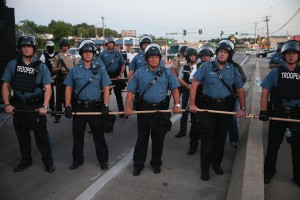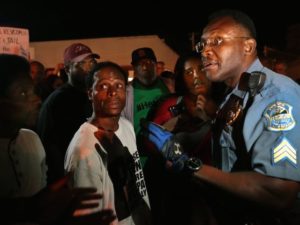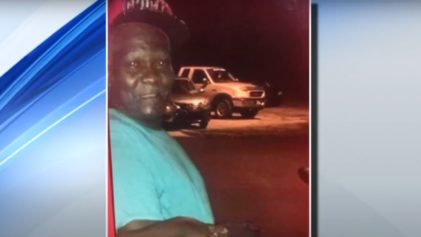
When protests took over the streets of Ferguson, Missouri, there was a clear contrast between those who wanted changes in the law and those who were enforcing it.
A sea of mostly peaceful African-American protesters clashed with a force of predominantly white police officers and served as a grim reminder that many predominantly Black communities are not seeing themselves represented in the police forces assigned to patrol them.
The problem is that departments across the country are insisting that recruiting a substantial amount of Black officers is not nearly as easy as the public might hope.
“We can’t get more Black officers,” said St. Louis County officer Erich Von Almen, according to NPR. “We recruit predominantly at Black schools, the military and for the life of me I don’t know why.”
Almen pointed out the inconvenient reality of joining the police force – the officers simply don’t get paid much.
With an average salary that is less than competitive and Black students having many more opportunities available to them than they did a generation ago, fewer Black students are looking to the police force as a career.
“It’s not the best-paying job,” Almen said. “They’d probably do better in the private sector. That’s all I can think of. But I know it’s not for the lack of trying.”
This is usually the problem for many police forces in inner-ring suburbs.
“Many young people today, particularly of color, have far more opportunities” available to them now, said DeKalb County, Georgia, public safety director Cedric Alexander.
These are opportunities that not only pay more, but also don’t require them to put their lives on the line on a daily basis.
The amount of Black officers in most departments actually has increased since the 1980s but growth has been slow and is now showing signs of becoming stagnant and possibly decreasing.
Another key issue, according to Alexander, is the broken relationship between the Black community and police forces.
“When I first came on, relationships were certainly much more strained – or just as strained – between communities of color and police at that time,” Alexander said, according to NPR.
The difference was that back then joining the force was seen as a way to make major changes in the community.
Today, it isn’t perceived the same way.
A narrative has formed around the presence of Black people in predominantly white police forces and it’s a rather frightening one.

Ferguson police Sgt. Harry Dilworth talks with protesters
Credit: Robert Cohen/St. Louis Post-Dispatch/MCT
Officers, even of the highest ranks, have allegedly been harassed and discriminated against by white officers, they have come face to face with citizens who slam them as “Uncle Toms,” and all this seems to be in vain as many officers claim it was impossible for them to make a difference in the midst of a team of white officers who didn’t see a need for change.
Take, for example, former St. Louis officer and current NAACP Ethnic Project head Reddit Hudson who recently opened up about his experience after spending five years on the force.
“I was floored by the dysfunctional culture I encountered,” he said, according to Raw Story. “I won’t say all, but many of my peers were deeply racist.”
He added that many of his colleagues laughed at the idea of a paid administrative leave after a shooting incident, referring to it as a “free vacation.”
Hudson said he joined the force to make a difference but eventually decided he “could not, in good conscience, participate in a system that was so intentionally unfair.”
As for trying to focus on younger students and encouraging them to become police officers, one recruitment officer for the St. Louis County Police Department said peer pressure has made that a nearly impossible task as well.
“Good luck cracking that,” said Kevin Minor. “Because everybody’s playing their role. You got the class clown, you got the ‘I don’t care,’ you got the ‘I don’t like the police.’ You might have one of them that’s interested in the career field but they can’t say anything because of peer pressure or whatever.”
He said once in awhile he might be able to identify a student who is interested but frightened off by peer pressure and talk to them privately about their interest in the force.
For the majority, however, their perception of the police has been tarnished with images of officers firing rubber bullets at protesters in Ferguson, placing Staten Island father Eric Garner in a chokehold, or dragging a topless, asthmatic Denise Stewart into the hallway of an apartment complex and leaving her uncovered while male officers looked on.


